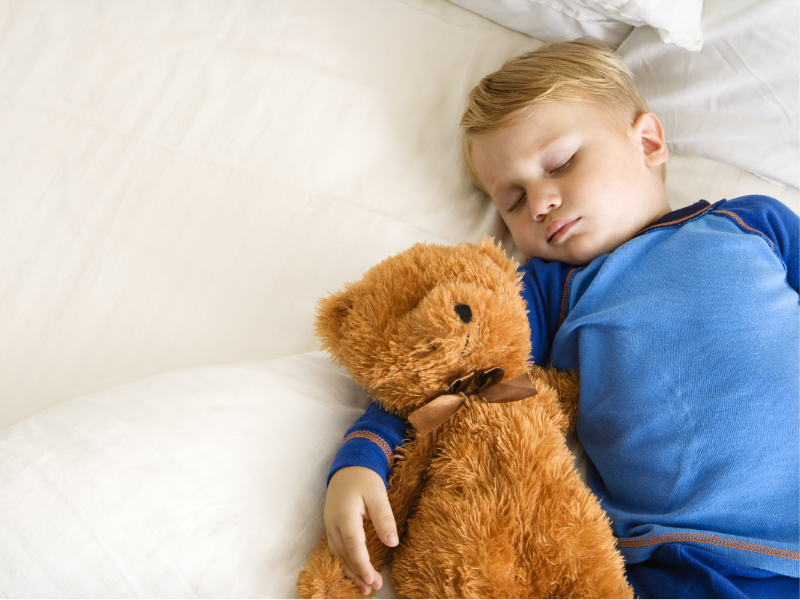How Much Sleep Does My Child Need?
You may know that children need more sleep than adults, but do you know how much is enough? Here is the recommended amount of sleep your child should be getting every day based on their age:
| Age group | Recommended amount of sleep |
| Newborns (3 months or younger) | 16-18 hours, including naps |
| Infants (4-11 months) | 12-16 hours, including naps |
| Toddlers (1-2 years) | 11-14 hours, including naps |
| Preschoolers (3-5 years) | 11-13 hours, including naps |
| School-aged children (6-13 years) | 9-11 hours |
| Teenagers (14-17) | 8-10 hours |
| Adults (18 and older) | 7-9 hours |
Sleeping well is essential to children’s development and well-being, and children need to develop good sleep habits early on. If you are worried your child isn’t getting enough sleep within a 24-hour, contact your pediatrician for help.
Sleep Essentials for Newborns and Infants (0-12 months)
Recommended Sleep Hours: Newborn(3 months or younger) need considerable sleep, typically requiring 16-18 hours per 24-hour period. As they grow into infants (4-11 months), this need decreases slightly to 12-16 hours. The Role of Sleep in Infant Development: Sleep is not just about rest during these early months. It’s a period of critical brain development. Growth hormones, crucial for physical development, are primarily released during sleep.
Practical Sleep Tips for Young Babies:
Recognize Sleep Cues: Be attentive to signs of sleepiness like rubbing eyes or fussiness, and put your baby to bed before they become overtired.
Establish a Routine: Consistency is key. Set regular sleeping times to establish a rhythm.
Create a Sleep-Conducive Environment: A quiet, dark, and cool room can help your infant sleep better.
Nurturing Healthy Sleep in Toddlers (1-2 years)
Recommended Sleep Hours: Toddlers need about 11-14 hours of sleep, which includes nighttime sleep and naps. This stage has significant developmental milestones, making adequate sleep crucial for their energy, learning, and growth.
Challenges and Tips for Sleepy Toddlers:
Manage Nighttime Fears: Comforting bedtime rituals and a night light can help alleviate fears.
Transitioning from Cribs to Beds: This significant change requires ensuring the bed is safe, possibly with bed rails to prevent falls.
Maintain a Bedtime Routine: Consistent routines like a bath followed by a story can signal that it’s time to wind down.
Ensuring Restorative Sleep for Preschoolers (3-5 years)
Recommended Sleep Hours: Preschoolers typically require 11-13 hours of sleep per night. Missing naps or bedtime can lead to overtiredness, which can negatively impact their mood and learning abilities.
Importance of Sleep Routine and Environment:
- Consistent Wake-up Time: Regulate the sleep cycle by waking up your child at the same time every day, including weekends.
- Limit Screen Time Before Bed: Reducing screen exposure before bedtime can help your child fall asleep more easily.
Create a Relaxing Bedtime Routine: Engaging in calm activities like reading or listening to soft music can ease the transition to sleep.











